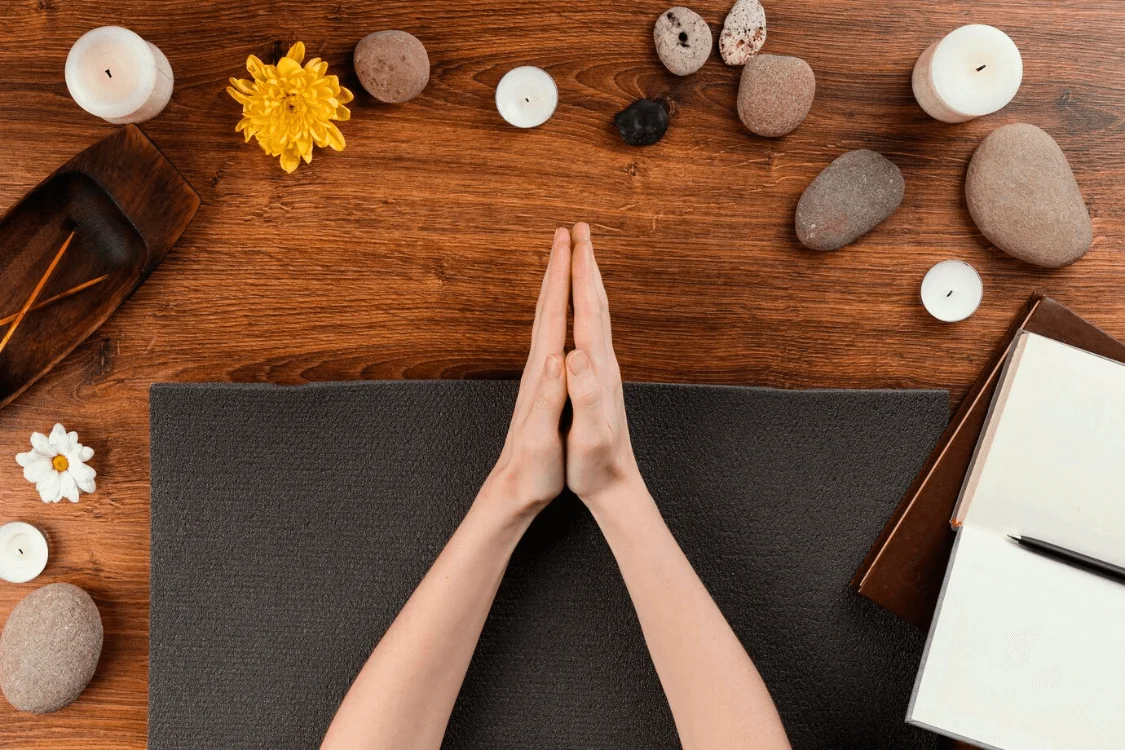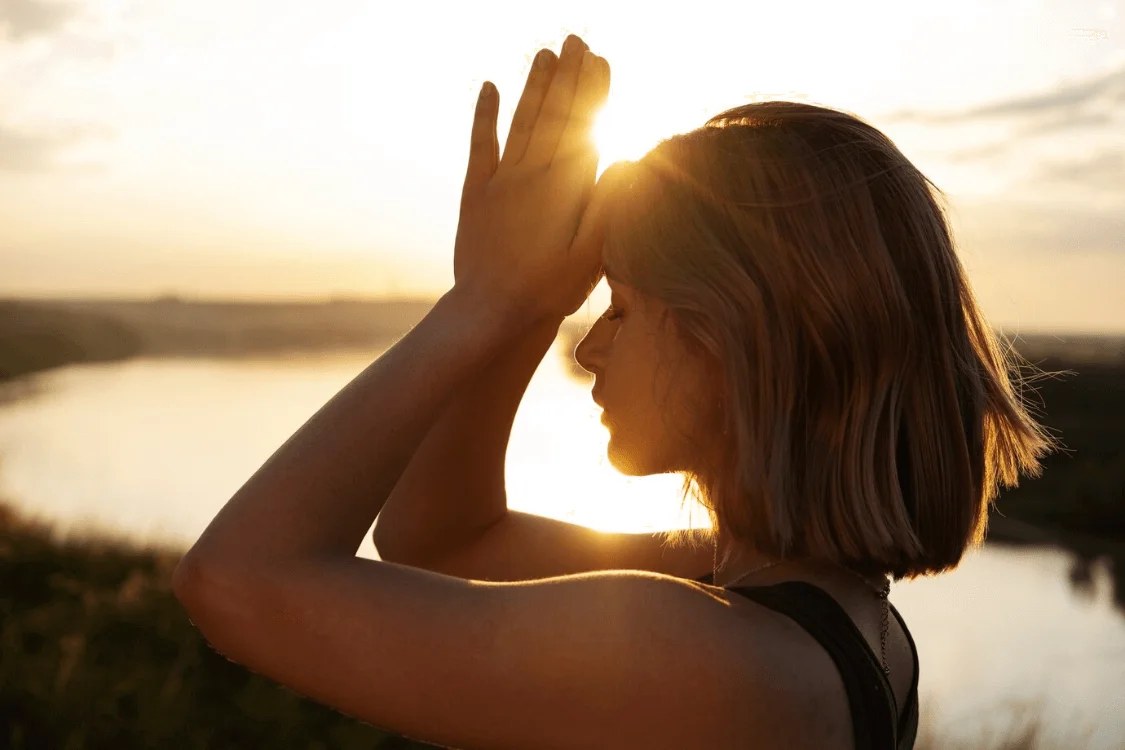
Holistic Therapy
Holistic therapy, with its roots extending back to the wisdom of Hippocrates, represents a comprehensive approach to healing that considers the entire person – mind, body, and spirit. This age-old wisdom, rekindled in modern times, underscores the interconnectedness of our well-being, advocating for a treatment approach that transcends conventional medical practices.
At Twilight Recovery Center, we embody this philosophy, offering holistic therapy as a cornerstone of our addiction treatment programs.

What is Holistic Therapy?
Holistic therapy is an integrative approach that addresses the interconnectedness of the mind, body, and spirit to promote overall well-being. Rooted in psychosynthesis, it aims to treat the individual as a whole rather than focusing on isolated symptoms or conditions, a major principle of holistic psychotherapy.
By examining how various aspects of one’s life influence each other, holistic therapy seeks to identify and address imbalances that contribute to psychological conditions like anxiety, depression, addiction, and stress.
Effective across a broad spectrum of emotional and behavioral challenges, holistic therapy combines traditional psychotherapy techniques with alternative practices such as mindfulness, yoga, and breathwork.
Holistic Therapy for Mental Health
Our center offers holistic therapy for mental health, recognizing the intricate link between mind, body, and spirit. Our approach integrates traditional psychotherapy with complementary practices such as mindfulness, yoga, and breathwork.
This diverse blend of therapies is tailored to treat a spectrum of mental health conditions, providing a pathway to deep healing and sustained well-being, which showcases the many forms of holistic therapy at our disposal.


Holistic Therapy for Substance Abuse Recovery
Our holistic therapy techniques for substance abuse take the whole-body approach. We combine detoxification support with meditation, acupuncture, and guided imagery alongside traditional therapy.
This comprehensive approach aims to address the root causes of addiction, reduce cravings, and promote emotional and physical recovery, guiding individuals toward a life of sobriety.
Addressing Alcohol Addiction with Holistic Therapy
For those struggling with alcohol addiction, our center provides a holistic therapy program that encompasses nutritional counseling, physical activities, and mindfulness practices in addition to counseling and group therapy.
This multifaceted treatment plan is designed to heal the body, mend emotional wounds, and encourage spiritual growth, supporting individuals on their recovery and relapse prevention journey.


Holistic Therapy for Process Addiction Treatment
Our approach to treating process addictions involves understanding the psychological factors driving compulsive behaviors and fostering holistic well-being.
Through cognitive-behavioral therapy, lifestyle adjustments, and holistic practices like meditation, we help individuals replace destructive habits with positive ones, achieving balance and fulfillment.
Dual Diagnosis or Co-occurring Disorders Treatment
Recognizing the complexity of dual diagnosis or co-occurring disorders, our center offers specialized holistic therapy that addresses both mental health conditions and substance abuse simultaneously. Our integrated treatment plan combines evidence-based therapies with holistic practices to tackle co-occurring disorders’ symptoms and underlying causes.
By focusing on healing the whole person, we aim to provide a comprehensive pathway to recovery, enhancing the chances of long-term success and overall well-being. This holistic approach to therapy may significantly improve outcomes for individuals.

Dual Diagnosis Treatment Programs at Our Rehab Center
Our dual diagnosis treatment process combines behavioral therapies, medication, and support groups, ensuring a holistic approach to recovery from drug and alcohol abuse. Key components of our program include:

Enhanced Mental Well-Being
Our holistic therapy programs are designed to improve overall mental health. They address conditions such as depression, anxiety, and stress, highlighting how therapy for anxiety is a critical component of our holistic approach. Through techniques like mindfulness and diaphragmatic breathing, we help individuals achieve a state of mental clarity and emotional balance.

Stress Reduction
We incorporate yoga and breathwork into our holistic therapy sessions, which have proven to lower stress responses and enhance relaxation. These methods are integral to our approach, aiding individuals in managing stress effectively.

Improved Cognitive Function
Our holistic therapy offerings include activities that boost cognitive function. Studies have shown that our methods, such as diaphragmatic breathing, can significantly enhance cognitive abilities, including memory, focus, and decision-making skills.

Better Family Communication
We understand the importance of family dynamics in the healing process. Our therapy programs often involve exercises and interventions to improve family communication, fostering stronger, more supportive relationships. Starting holistic therapy may enhance these outcomes by incorporating a wider range of complementary and alternative techniques.

Addiction and Trauma Recovery
Our center uses holistic therapy to address the complexities of addiction and trauma. Integrating yoga and somatic breathing into our treatment plans provides effective tools for individuals working to overcome these challenges, demonstrating how holistic therapy can help balance the mind-body connection.

Chronic Pain Management
Holistic therapy also extends to managing chronic pain. We offer strategies to mitigate pain and improve quality of life through meditation and other mindfulness practices, grounding our approach in evidence-based research.
Each of these benefits is a testament to our comprehensive care, aiming to treat the whole person rather than just the symptoms. Holistic therapy can help achieve this integrative healing approach. By choosing us for holistic therapy, individuals embark on a healing journey that considers every aspect of their well-being.
Types of Holistic Therapy Modalities We Offer
We offer a holistic therapy program that integrates a broad spectrum of modalities, ensuring a personalized and effective treatment journey for every individual. Our approach is designed to nurture the mind-body-spirit connection, drawing from traditional and innovative therapies to support healing on all levels.
Breathwork and Meditation
In our holistic therapy sessions, we utilize breathwork and meditation as foundational practices. These techniques are pivotal in managing stress, enhancing mindfulness, and fostering inner peace and clarity, embodying the holistic approach to mental well-being.
Yoga and Acupuncture
Yoga, with its emphasis on physical posture, breathing techniques, and meditation, alongside acupuncture, a practice rooted in traditional Chinese medicine, is integral to our therapy offerings. These practices work synergistically to balance energy, reduce pain, and promote emotional well-being.
Equine Therapy
Discover the transformative power of Equine Therapy at our rehab center. This unique treatment approach fosters emotional healing and personal growth through meaningful interactions with horses, promoting self-awareness, trust, and communication skills in a serene, supportive environment. Experience a path to recovery that connects mind, body, and spirit.
Cognitive Behavioral Therapy (CBT)
CBT is a cornerstone of our therapeutic practices, offering a structured approach to identifying and transforming negative thought patterns and behaviors into positive outcomes, reinforcing our holistic treatment philosophy.
Dialectical Behavior Therapy (DBT)
DBT provides clients with critical skills in emotional regulation, mindfulness, distress tolerance, and interpersonal effectiveness, enriching the holistic therapy experience with tools for managing intense emotions and improving relationships.
EMDR Therapy
For those dealing with trauma, our EMDR (Eye Movement Desensitization and Reprocessing) therapy sessions are designed to alleviate the distress associated with traumatic memories, facilitating the brain’s natural healing processes.
Trauma Therapy
Our trauma therapy sessions address the psychological effects of trauma, utilizing a blend of therapeutic techniques to support recovery and resilience, embodying our commitment to treating the whole person.
Motivational Interviewing (MI)
MI is employed to enhance motivation and resolve ambivalence towards change, supporting individuals on their path to recovery by aligning their values and goals with their actions.
Family Therapy
Recognizing the crucial role of family dynamics in the healing process, our family therapy sessions aim to improve communication, resolve conflicts, and strengthen relationships, which are integral to holistic recovery.
Each modality we offer at Twilight Recovery Center is carefully selected and integrated into a comprehensive care plan tailored to meet the unique needs of our clients, illustrating how many forms of holistic therapy we integrate into our treatments.

How Our Holistic Therapy Works
Holistic therapy is a form of therapy that recognizes the interconnectedness of these aspects and how imbalances in one area can impact others. In essence, holistic therapy may provide a more comprehensive approach to addressing these imbalances. Here’s a closer look at how our licensed holistic doctor may help you recover:
Integrating Mind and Body
In traditional psychotherapy, the focus is often on the mind – on thoughts, emotions, and behaviors. Holistic therapy expands this focus to include the body. Our therapists may also explore how mental health issues like anxiety or depression manifest physically, perhaps as tension, fatigue, or other somatic symptoms.
Techniques such as breathwork, yoga, or massage therapy are employed for physical relief and as pathways to uncovering deeper emotional issues.


Addressing Spiritual Health
Holistic therapy also delves into the spiritual aspect of well-being, which doesn’t necessarily mean religion but rather a sense of connection to oneself and the world.
Practices include meditation, mindfulness, or reiki, which help individuals find balance, peace, and a deeper sense of purpose. These are examples of how holistic therapy may incorporate complementary and alternative practices into its regimen.
These are key components of holistic medicine, promoting healing beyond conventional methods. These practices encourage a reflective stance towards life’s challenges, promoting resilience and a holistic sense of health.
Personalized Healing Journeys
A key aspect of how holistic therapy works is its emphasis on personalization. Therapists work closely with individuals to understand their unique experiences and tailor treatment plans that resonate with their specific life circumstances and health goals. This personalized care is a hallmark of holistic psychotherapy.
This bespoke approach ensures that therapy addresses the nuances of each person’s journey toward wellness, making holistic therapy a deeply personal and transformative process.

Begin Your Holistic Therapy Sessions with Us
Choose a journey to wellness with Twilight Recovery Center, where holistic therapy marks the beginning of a personalized path to recovery. Our holistic therapy programs are crafted to address not just the symptoms of addiction but the deeper underlying causes, guiding you towards a life of balance, health, and fulfillment. Whether you’re trying to find a holistic provider for physical and spiritual healing or need other holistic techniques to help with concerns in other areas, this type of therapy emphasizes a comprehensive view of the individual’s needs.
Connect with us to learn more about how we can support you or your loved one in embracing a holistic path to recovery, where you can learn more about holistic therapy and its benefits.
FAQs on Holistic Therapy
What Should I Look for in a Holistic Therapist?
When searching for a holistic therapist, ensure they are licensed and accredited by a credible medical board. Look for someone who integrates various forms of psychotherapy and holistic practices, such as ayurveda, bodywork, and mindfulness, tailored to your overall health needs. Their approach should be grounded in psychosynthesis, offering a deep understanding of the whole person.
What Is the Difference between Holistic Psychotherapy and Traditional Therapy?
Holistic psychotherapy differs from traditional therapy in its approach to healing. While traditional therapy may focus primarily on talk therapy and cognitive techniques, holistic psychotherapy incorporates alternative medicine, bodywork, and practices aimed at improving self-awareness and spirituality.
This integrative approach helps you heal by getting to the root of concerns, offering a comprehensive understanding of your whole self.
Can Holistic Therapy Help with Anxiety and Depression?
Holistic therapy addresses anxiety and depression by combining traditional psychotherapeutic techniques with holistic practices such as meditation, breathwork, and yoga. This blend aims to enhance your overall well-being, providing tools for self-care and promoting a deeper understanding of how mental health affects physical health.
Holistic therapy often leads to long-term relief from symptoms by focusing on the whole body approach, clarifying the goal of holistic therapy in achieving sustainable health and well-being.
Can Holistic Therapy Be a Form of Self-Care?
Absolutely. Holistic therapy is based on the idea that healing encompasses more than just the mind or body alone. By engaging in holistic therapy, you’re committing to a form of self-care that nurtures your whole self, incorporating practices that foster overall health and well-being. This approach encourages you to take an active role in your healing journey, making holistic therapy a powerful tool for self-care.
Is Holistic Therapy Supported by Research?
Yes, there’s an emerging body of research suggesting that holistic therapy can effectively treat various conditions, including anxiety, depression, and chronic pain. Studies backed by the National Conference on Holistic Health and other reputable sources have found that techniques used in holistic therapy, such as meditation and yoga, can significantly improve mental and physical health outcomes.



